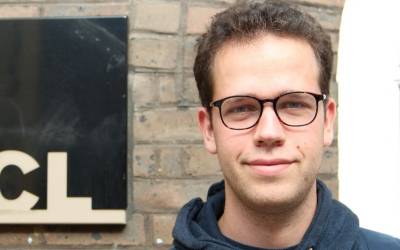Markus has recently completed his PhD viva, titled “Populist Rhetoric in Party Competition and its Effects on Voters".
Biography
Markus Kollberg is a PhD Candidate in the Department of Political Science, University College London (UCL). In Spring 2022, he was a visiting PhD researcher at Yale University. He holds an MSc in Democracy and Comparative Politics from UCL, completed a BA in Politics, Organisation and Administration at University of Potsdam (Germany), and spent a semester abroad at Babes-Bolyai University Cluj-Napoca (Romania). Markus has also been working as a freelance journalist for several Media Outlets covering German, British and International Politics.
Research Interests
Themes: European Politics, Comparative Political Behaviour, Party Politics, Persuasion
Methods: Text-as-Data, Survey Experiments, Measurement, Causal Inference
Abstract
Over the last two decades, European democracies have witnessed a rise in the electoral success of populist challenger parties. Previous research is primarily concerned with the economic and political conditions that facilitate this development but has overlooked how challenger parties exploit these conditions using populist rhetoric. Against this backdrop, this PhD project investigates how elites strategically employ populist rhetoric, how voters perceive populist elite cues, and what mainstream parties can do to counter populist arguments.
To do so, the research project combines a battery of innovative text-as-data approaches with survey experiments. The thesis analyses the rhetorical strategies of challenger party politicians by utilising a novel combination of bespoke dictionaries and word embeddings to measure anti-establishment rhetoric at scale in debates of the European Parliament. Furthermore, it explores the effects of populist arguments on voters’ issue, candidate, and party preferences by conducting survey experiments in the UK and Germany.
Teaching Summary
Markus has substantial experience in teaching classes in Political Science and Data Science. He has been a teaching assistant for courses on Quantitative Text Analysis and Machine Learning at the LSE’s Department of Methodology, as well as for Measurement in Data Science, and an introductory course on Comparative Politics at UCL. In addition, he has been involved in teaching and organising several civic education programmes in Germany and Romania.
 Close
Close


